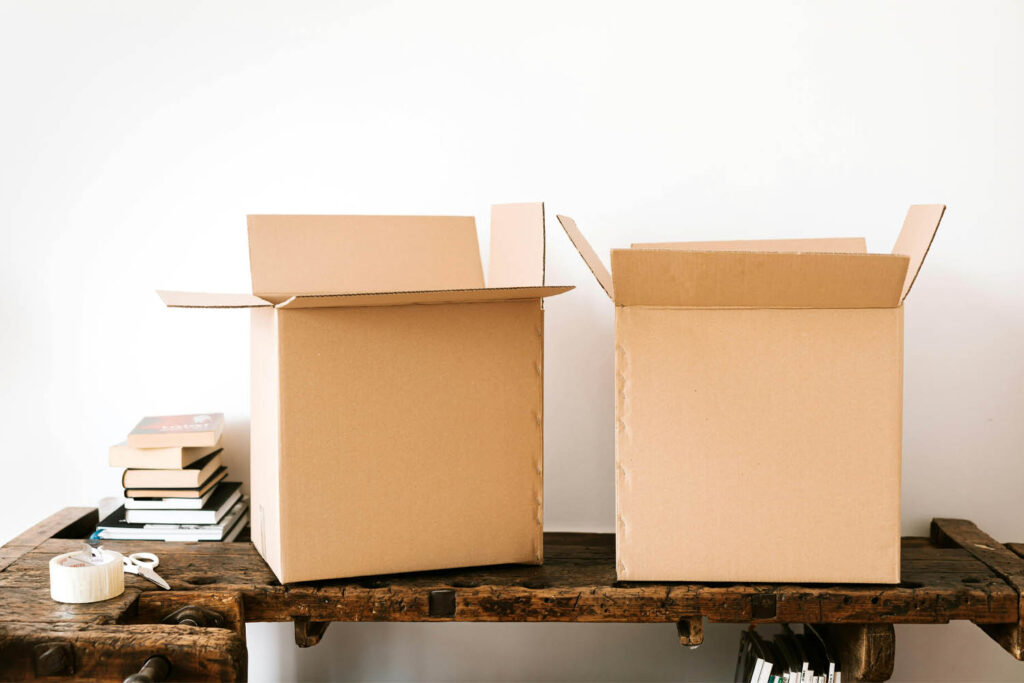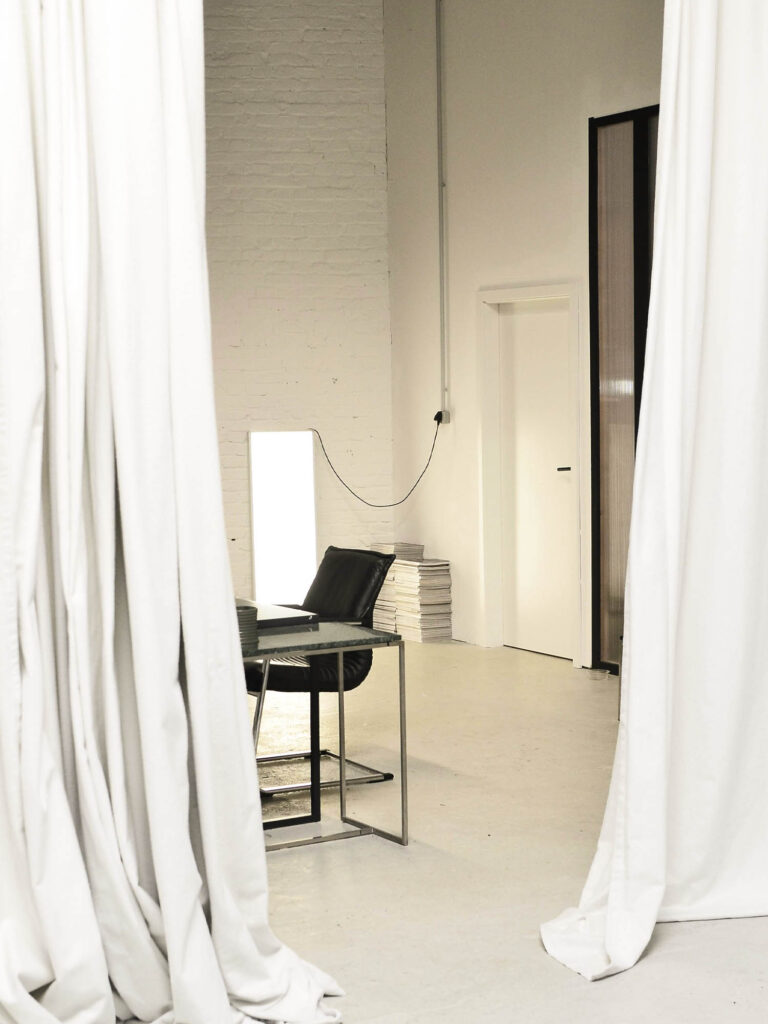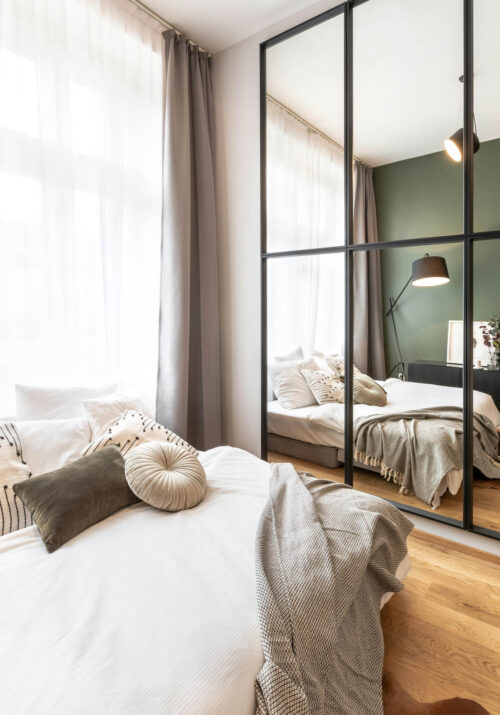Embarking on the journey of moving into a new apartment is a multifaceted experience, blending excitement with the potential for challenges. It’s not just about finding the perfect dwelling; it’s about ensuring a comfortable and seamless transition into a new living space.
This guide aims to be your compass, providing in-depth insights and essential tips for both the apartment hunting process and the subsequent move, offering a roadmap for a successful and stress-free settling-in experience.

Don’t Be Afraid to Ask Questions
As you set out in search of your ideal apartment, the importance of asking the right questions cannot be overstated. Beyond the aesthetics and location, delve into the practicalities that impact your daily life. Inquire about mail delivery procedures, understanding what services are included in the rent, and seek clarity on any potential hidden costs.
This proactive approach not only provides a clearer picture of your financial commitments but also helps prevent potential challenges down the line.
Assess the General Condition of the Place
A critical aspect of securing a new apartment is a meticulous examination of its overall condition. Beyond the initial visual appeal, scrutinize the space for signs of wear and tear, water damage, or any potential red flags. Investigate the window sills for drafts, ensuring that your potential new abode is free from hidden surprises that could compromise your comfort and well-being.
Listen in Every Room
Creating a peaceful and serene living environment involves more than just visual inspections. Dedicate time to experience each room individually, paying attention to the ambient noise. Listen for potential disturbances from neighbors, street traffic, or nearby establishments.
Evaluating the noise levels in each room helps you make an informed decision about the overall atmosphere of your prospective home.
Check the Security of the Building
Safety should be a top priority when choosing a new residence. Assess the security features of the building, including secure entrances, well-lit common areas, and functioning locks on windows and doors.
Feeling secure in your new home creates a foundation for a comfortable and stress-free living experience.
Inspect Facilities, Parking, and Access
Beyond the confines of your apartment, consider the broader aspects that contribute to your daily life. Investigate the available facilities, parking options, and the apartment’s accessibility for routine tasks like grocery shopping.
A thorough examination of these aspects ensures that your new residence aligns with your lifestyle and convenience requirements.
Examine the Lease Agreement
Before committing to a new living space, a careful review of the lease agreement is crucial. Understand the terms related to personalizing your space, maintenance responsibilities, and any restrictions on modifications. Clarity on these details minimizes the potential for misunderstandings and establishes a foundation for a harmonious landlord-tenant relationship.
Declutter Before Moving
As the moving process looms, simplify and streamline by decluttering your belongings.
Beyond the practicality of reducing the volume of items to be moved, decluttering sets the stage for a fresh start in your new living space. Assess your possessions and discern what truly adds value to your life, parting ways with items that no longer serve a purpose.
Create a Packing List
A systematic approach to packing is essential for a smooth transition. Develop a comprehensive list of items during the decluttering and packing process. This not only ensures that you have everything you need but also minimizes the likelihood of last-minute stress and oversights. Categorize items based on priority, facilitating an organized and efficient packing process.
Dive further into our guide on ‘Mastering the Move: Essential Tips and Must-Knows for Apartment Hunting and Settling In’ to discover invaluable insights that will empower you throughout the process—unlock the key points for a successful apartment search and a seamless settling experience by continuing to read!
Consider Hiring Movers
The logistics of a move can be overwhelming, prompting consideration of professional movers. Seek detailed written quotes from reputable moving companies to understand the costs involved and to avoid surprises on moving day. Professional movers can streamline the process, providing expertise and efficiency to ensure a smooth transition.
Assemble a Moving Day Kit
Preparation for moving day extends beyond packing boxes. Assemble a moving day kit containing overnight essentials, toiletries, cleaning products, and toilet paper. This ensures that you are well-equipped for your first night in the new apartment without the hassle of rummaging through boxes to find necessities.

Photograph the Empty Apartment
Before the furniture arrives, capture images of the empty apartment. These photographs serve as documentation, offering evidence in case of disputes with the landlord regarding pre-existing damages. A visual record provides clarity and protection for both parties involved.
Basic Toolkit
A well-prepared tenant is equipped to handle minor repairs or adjustments around the apartment. Keep a basic toolkit on hand, including essential tools for unforeseen issues that may arise. This proactive approach fosters a sense of self-sufficiency and minimizes dependence on external assistance for minor fixes.
Introduce Yourself to Neighbors
Building a sense of community starts with introductions. Take the initiative to introduce yourself to neighbors, fostering positive relationships from the outset. A friendly neighborhood contributes significantly to a more pleasant and supportive living experience.
Organize Finances with an Excel Sheet
Financial management during a move requires a structured approach. Utilize an Excel sheet to track all essential costs and create a budget. This systematic method helps manage finances efficiently throughout the moving process and beyond, providing transparency and control over expenses.
Build a Financial Buffer
In the realm of financial preparedness, establishing a buffer is a prudent step. Save at least 4-6 months’ worth of rent in a separate bank account, serving as a financial cushion.
This precautionary measure offers peace of mind in case of unexpected expenses or changes in financial circumstances, providing stability during the initial phases of settling into a new home.
By meticulously following these detailed tips and must-knows, you can master the art of apartment hunting and ensure a smooth settling-in process. From asking the right questions during your search to creating a moving day kit, each step plays a crucial role in the successful transition into your new home.
As you embark on this journey, may your moving experience be filled with ease, comfort, and the anticipation of a new chapter in your life.
Happy moving!




